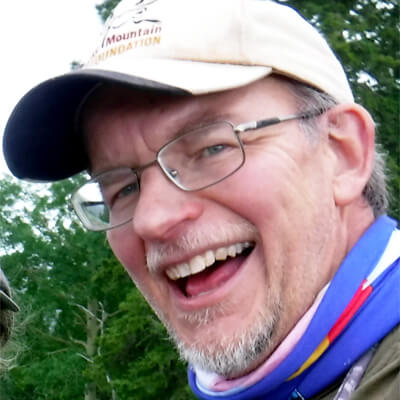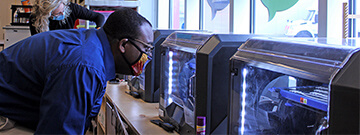
Join us for Café Scientifique
Interested in science? Want to learn more about the latest technology breakthroughs in normal English, minus the jargon? Then Café Scientifique Pittsburgh at Carnegie Science Center is the place to be!
Café Sci is THE place in Pittsburgh where anyone interested in science can get together to discuss today’s science issues with experts, and best of all… you can ask your own questions! After a brief talk by our monthly guest speaker, the evening is dedicated to a question-and-answer session.
|
Presented by: |
When a Salamander Speaks: Amphibian Responses to Climate Change in the Rocky Mountains
When a Salamander Speaks: Amphibian Responses to Climate Change in the Rocky Mountains
Upcoming on-site and virtual lecture:
Mon., Feb. 24
7–9 p.m.
Register for the free lecture! ![]()
Presenter
Dr. Howard Whiteman, Ph.D.
Commonwealth Endowed Chair of Environmental Studies
Professor, Department of Biological Sciences
Director, Watershed Studies Institute
Murray State University

Amphibians are model organisms for understanding the impacts of environmental change on living things. Because they rely on temperature, they also provide excellent study systems for understanding the effects of climate change. This is particularly true in mountain environments, where climate change has been happening more quickly than the planet as a whole. In this presentation, Dr. Whiteman will detail his long-term research on tiger salamanders in Colorado, describe what these unique salamanders tell us about dealing with a changing climate, and share how we can use that information to help humanity navigate the future.
About Howard Whiteman
Dr. Howard Whiteman is Commonwealth Endowed Chair of Environmental Studies, Director of the Watershed Studies Institute, and Professor in the Department of Biological Sciences at Murray State University (Murray, Kentucky). Dr. Whiteman studies evolutionary ecology and conservation biology and has conducted field and experimental research for over three decades. A native of West Mifflin and graduate of Allegheny College, he writes a biweekly column about science and the environment for five newspapers, including Pittsburgh’s own Valley Mirror.
Register for Café Sci
The event is FREE to attend, but preregistration is required ![]() ! Carnegie Science Center would like to continue to offer programs like Café Sci, Women in STEM, and others. Please consider making a donation when you register. Once you sign up, you’ll get an email confirmation. Have a question for Dr. Whiteman? You’ll be able to type your questions in the Q&A section during the presentation!
! Carnegie Science Center would like to continue to offer programs like Café Sci, Women in STEM, and others. Please consider making a donation when you register. Once you sign up, you’ll get an email confirmation. Have a question for Dr. Whiteman? You’ll be able to type your questions in the Q&A section during the presentation!
We want to hear from you!
What impact has Café Sci had on you? Are you a scientist interested in speaking at Café Sci? Do you have a recommendation for a speaker or topic? Contact us at info@carnegiesciencecenter.org.





